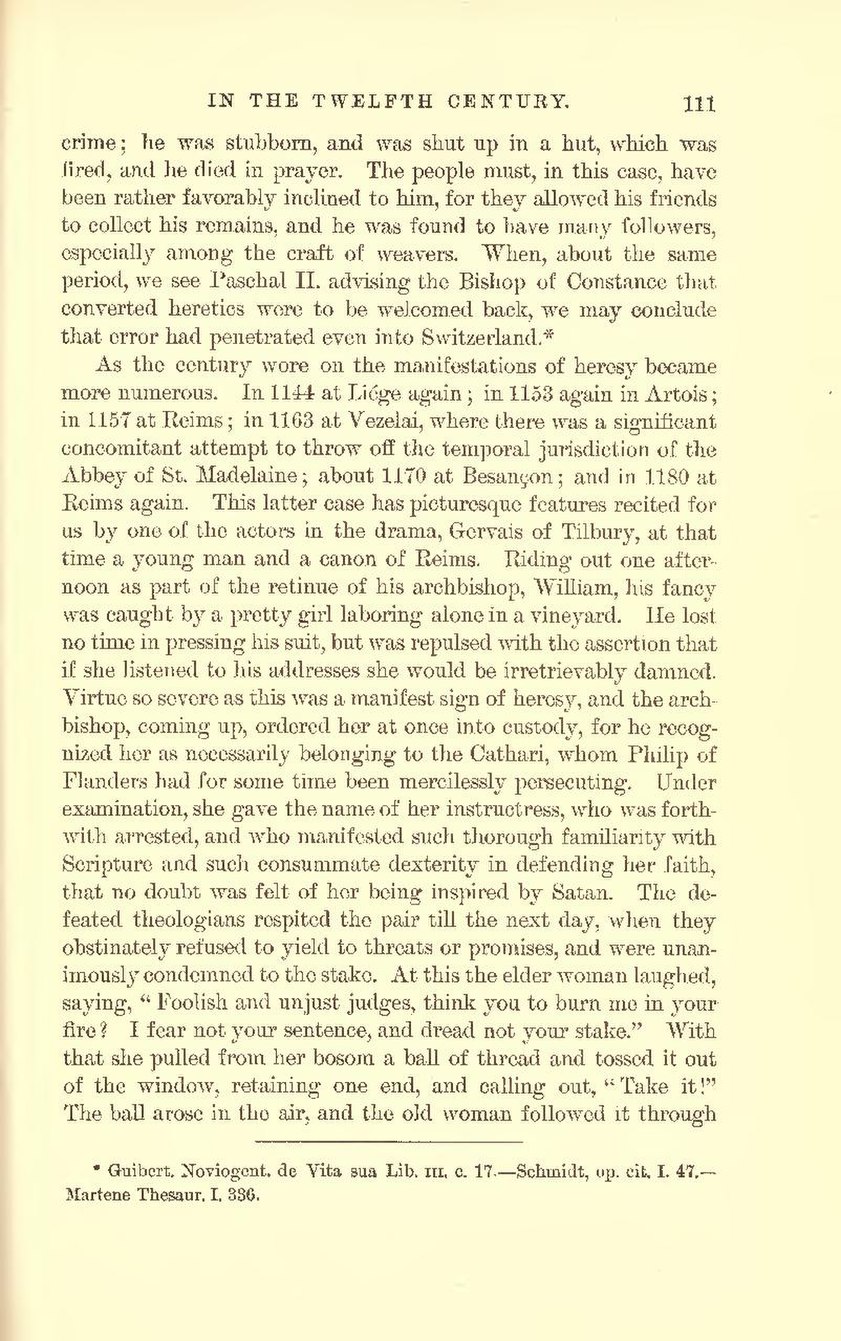crime ; he was stubborn, and was shut up in a hut, which was fired, and he died in prayer. The people must, in this case, have been rather favorably inclined to him, for they allowed his friends to collect his remains, and he was found to have many followers, especially among the craft of weavers. When, about the same period, we see Paschal II. advising the Bishop of Constance that converted heretics were to be welcomed back, we may conclude that error had penetrated even into Switzerland.[1]
As the century wore on the manifestations of heresy became more numerous. In 1144 at Liege again ; in 1153 again in Artois; in 1157 at Reims ; in 1163 at Yezelai, where there was a significant concomitant attempt to throw off the temporal jurisdiction of the Abbey of St. Madelaine ; about 1170 at Besangon ; and in 1180 at Keims again. This latter case has picturesque features recited for us by one of the actors in the drama, Gervais of Tilbury, at that time a young man and a canon of Reims. Riding out one afternoon as part of the retinue of his archbishop, William, his fancy was caught by a pretty girl laboring alone in a vineyard. He lost no time in pressing his suit, but was repulsed with the assertion that if she listened to his addresses she would be irretrievably damned. Virtue so severe as this was a manifest sign of heresy, and the archbishop, coming up, ordered her at once into custody, for he recognized her as necessarily belonging to the Cathari, whom Philip of Flanders had for some time been mercilessly persecuting. Under examination, she gave the name of her instructress, who was forthwith arrested, and who manifested such thorough familiarity with Scripture and such consummate dexterity in defending her faith, that no doubt was felt of her being inspired by Satan. The defeated theologians respited the pair till the next day, when they obstinately refused to yield to threats or promises, and were unanimously condemned to the stake. At this the elder woman laughed, saying, " Foolish and unjust judges, think you to burn me in your fire ? I fear not your sentence, and dread not your stake." With that she pulled from her bosom a ball of thread and tossed it out of the window, retaining one end, and calling out, "Take it !" The ball arose in the air, and the old woman followed it through
- ↑ Guiliert. Noviogent. de Vita sua Lib. iii. c. 17. — Schmidt, op. cit. I. 47.- Martene Tbesaur. I. 336.
